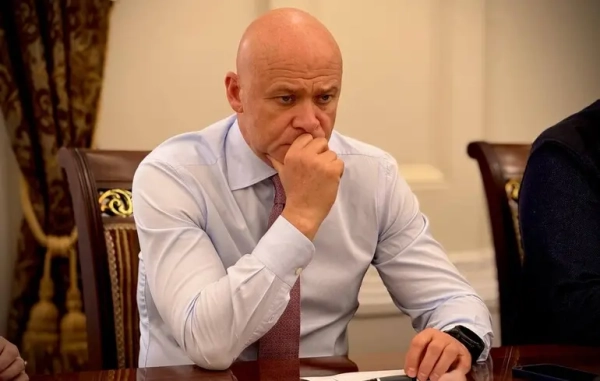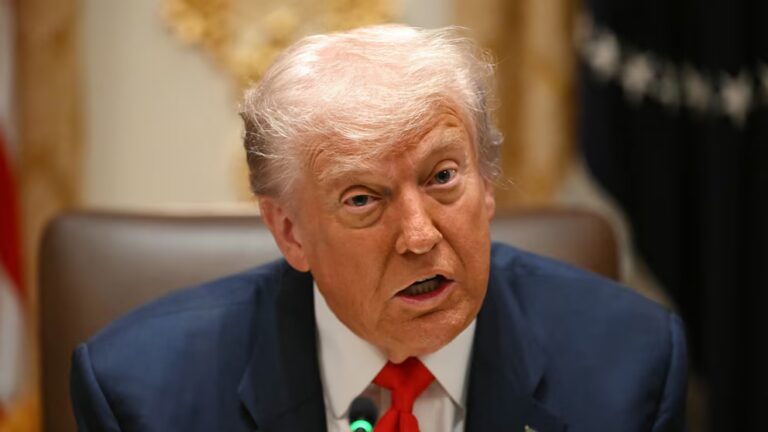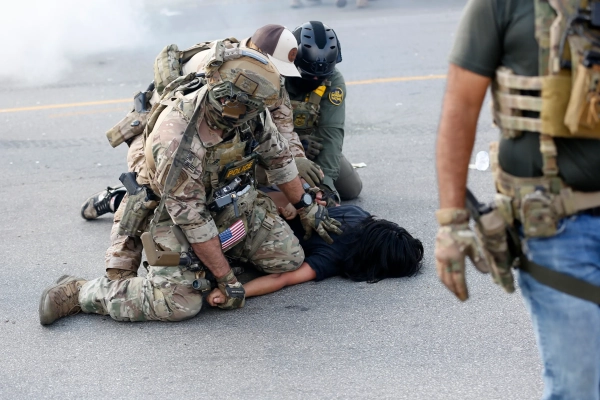There's a tension between voter access and voting security, but that balance has been tipping decidedly one way in the recent political environment in which false claims that Trump didn't lose the 2020 election have muddied the waters, according to many experts who are raising alarms about proposed election-related laws.
Since the last presidential election, conservative state legislators across the country have enacted or introduced a flurry of bills that would increase restrictions to the election system — with a focus, in 2022, on changing how races are run and regulated — according to several nonpartisan organizations who describe themselves as advocating for democracy.
Experts from the States United Democracy Center, the Brennan Center for Justice and other groups who spoke with ABC News tied this growing amount of legislation to the false election fraud allegations that Donald Trump and his supporters' have been spreading since Joe Biden's victory in 2020.
Since Trump was defeated by Biden, Trump has continued to claim — without evidence — that his election was marred by ineligible voters, fake votes cast by mail and other problems.
The pro-democracy groups told ABC News that hundreds of GOP-authored bills on voting and elections have already been considered during the 2022 legislative sessions in various states, consistent with a similar trend seen in 2021.
The measures from the past two years would purge some people from voter rolls, restrict mail-in ballot access and early voting — which was heavily emphasized by many states during the COVID-19 pandemic — as well as tighten ID requirements to vote, allow politicians to oversee local election boards and more, according to pro-democracy watchdogs.
MORE: Why election experts worry for American democracy and what they say can be done
The bills introduced at the state level would generally make it harder for eligible Americans to register to vote, cast their ballots and stay on voter rolls in comparison to existing laws, according to the Brennan Center. Joanna Lydgate, the co-founder and CEO of the States United Democracy Center, also specified that restrictive bills introduced over the past two years touch every aspect of current voting systems.
"Through these bills, legislators are kind of trying to take control over practically every step of the electoral process," she said.
Only a fraction of proposed legislation typically gets signed into law, according to experts. But the "political bluster" of bills churning through statehouses will have an impact on expert-run elections systems that have successfully operated for decades, Lydgate, co-founder and CEO of the States United Democracy Center, told ABC News.
"In a lot of cases these are really poorly designed bills … it can lead to a lot of really unworkable situations. It can lead to confusion and chaos," Lydgate said.
Fair Fight Deputy Executive Director Esosa Osa said that in her group's view, there was a "new dynamic of shifting power over election administration from state and local election officials to more partisan actors, and there's hyper criminalization of voting." Fair Fight was founded by Georgia Democratic gubernatorial candidate Stacey Abrams in 2014.
"If you consider the ability to vote, the ability to register to vote, to cast a ballot, and to have that ballot counted fairly — we are seeing all three aspects of that attack," Osa told ABC News.
But John Fortier, a voting and elections expert for the conservative-aligned American Enterprise Institute, noted that some of the election bills come with nuance such as attempts to return elections back to in-person models after the COVID-19 pandemic rather than to create entirely new sets of restrictions.
"Do I think that some of the major bills that are being considered and passed through are really aimed at cutting down turnout? I don't think they are aimed that way," he told ABC News.
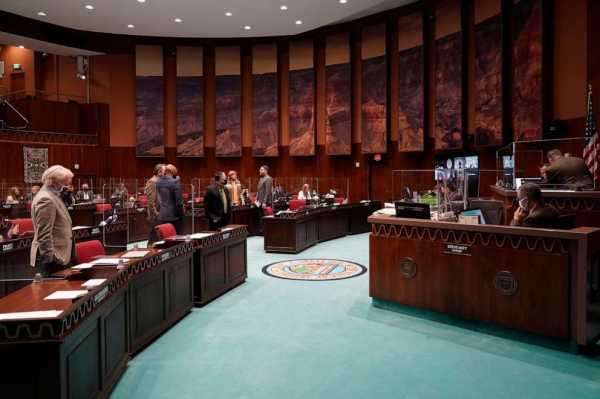
In this Feb. 18, 2021, file photo, state representatives gather at the Capitol, in Phoenix.Matt York/AP, FILE
State legislatures are "not as interested in moving to kind of a Washington state, Oregon, 100% voting-by-mail model," Fortier said.
In his view, increasing election security doesn't always involve tightening access to elections themselves.
"I think it is true that Republicans have a lens of looking at elections where they prioritize more integrity issues," he said. "You can imagine cases where that gets in the way of access, but I don't think they're always as contradictory as one thinks."
For example, Georgia enacted a sweeping 2021 election bill that was criticized by some advocates for increasing regulations on mail voting. But the law also imposed requirements to try and keep poll lines shorter and increase the availability of poll workers.
By the numbers
Fair Fight said that in 2022 they have counted almost triple the amount of election-related legislation they'd tallied during 2011, the last year they marked a highpoint for restrictions on who can vote and how.
In the years 2018, 2019 and 2020 — before the crescendo of unsupported claims by Trump and his allies about problems with elections — the Brennan Center had tallied more pro-voter reforms than anti-voter restrictions.
In 2018, the Brennan Center counted at least 12 states that advanced a combined total of at least 20 bills expanding voting access in comparison to five states that advanced a combined total of at least six bills restricting voting access.
In 2019, 46 states introduced or carried over 688 bills expanding access compared to 29 states introducing or carrying over at least 87 bills restricting voting access.
And in 2020, during the first year of the COVID-19 pandemic and with many people in isolation, the Brennan Center counted 57 restrictive bills before state legislatures, while 29 states had introduced at least 188 bills to expand access.
MORE: 10 new state laws shift power over elections to partisan entities
Another report, published through a partnership between the nonpartisan voter organizations States United Democracy Center, Law Forward and Protect Democracy, echoed what Fair Fight and the other groups assessed as increasing restrictions on elections.
This new report tallied at least 244 bills introduced in 33 states that would interfere with election administration as of July 31. Twenty-four of those bills have become law, or adopted, across 17 states. That's up from 229 bills identified in May and 216 bills spanning 41 states during the entirety of the 2021 legislative year.
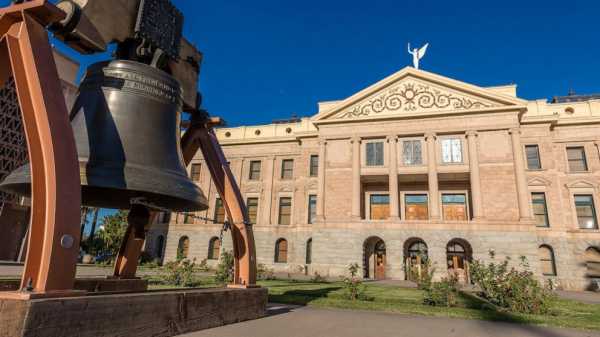
A replica of the Liberty Bell is shown in front of the Arizona State Capitol Building in Phoenix.UIG via Getty Images, FILE
Arizona and Wisconsin were the two states identified in the report with more than 30 anti-democratic bills introduced or under consideration, according to the report. Every other state
An additional analysis, published in May 2022 from the Brennan Center, reported similar findings for 2022 but tallied additional bills in 2021 — 440 in 49 states — that carried provisions to restrict voting access during the legislative sessions.
"The sheer volume and certainly the growth of the trend is cause for concern," Lydgate, with the States United Democracy Center, said. "This is a national trend."
These bills, Osa said, "highlight the broader political ecosystem that we are in following the 2020 election and the big lie" about Trump's loss.
Opposing views
Simple conclusions about the entire country are hard to draw, however. Despite the influx of restrictive voting legislation moving through Statehouses across the country, there are some efforts to expand voting access as well.
Many state legislatures this year also took steps to broaden voting rights and election access, according to the Brennan Center. The group counted at least 596 of what they termed "expansive" bills in 44 states and Washington, D.C. Most of those proposals would allow for easier voter registration, a process to seek voting rights restoration for those convicted of crimes and easier mail-in voting in states like Arizona, Connecticut, New York and Oregon.
Elsewhere, however, some states have tightened their regulations — though supporters of such moves say it's about security and smooth election administration.
MORE: What's at stake in Supreme Court battle over controversial legal theory about who controls elections
In 2021, states like Georgia, Florida and Iowa passed sweeping omnibus bills that included election measures like shortening the period for requesting an absentee ballot or adding ID requirements for absentee ballots.
After Georgia saw record-breaking turnout during the March 2021 primary elections — the first test of Democratic predictions that the heightened requirements would actually turn people away from the polls — members of the GOP denounced the attacks as so much smoke.
"[Stacey] Abrams and President Biden lied to the people of Georgia and the country for political gain," Georgia Secretary of State Brad Raffensperger said. "From day one, I said that Georgia's election law balanced security and access, and the facts have proved me right."
Osa from Fair Fight, and the Brennan Center, however, said that as primary turnout grew in Georgia, so did the turnout gap between white and Black voters.
What worries experts now
The experts who spoke with ABC News called attention to certain kinds of standalone state bills being proposed this year: those that would shift election oversight to partisan legislatures instead of nonpartisan election officials; those that would require political reviews of elections that might delay their certifications; and those that would create "unworkable burdens" or even threat of criminal penalties for election officials.
The democracy experts who spoke with ABC News also expressed concern over the rise of 2020 election deniers — including those, as state legislators, who spearheaded new voting rules — who are now high-profile GOP candidates in the 2022 midterms.
In Arizona, for example, state Rep. Mark Finchem introduced a bill to decertify Arizona's 2020 election, which Biden won. Finchem also introduced legislation to require hand tabulation of ballots and audits of election systems. He's now as the Republican nominee for secretary of state, Arizona's highest elections post.

In this Feb. 8, 2022, file photo, Gov. Tom Wolf delivers his budget address for the 2022-23 fiscal year to a joint session of the Pennsylvania House and Senate in Harrisburg, Pa.Matt Rourke/AP, FILE
In Pennsylvania, state Sen. Doug Mastriano, now the Republican gubernatorial nominee, previously introduced legislation that would replace the current groups that oversee election administration and establish a commission that would strip away the election powers of the department of state and the secretary of the commonwealth.
A number of the bills moving through Arizona and Rhode Island would require or authorize additional audit processes for future elections. In Arizona, there are also bills that would allow citizens conduct their own reviews of voted ballots.
"This legislation uniformly lacks basic security, accuracy, and reliability measures for these suspect reviews, bestowing inordinate discretion on individuals, imposing no transparency requirements, or failing to mandate clear guidelines for how results are reviewed," according to a review from the Brennan Center's February 2022 roundup of voting laws.
Voting-related prosecutions are also cause for worry in some cases, the experts said, as some states aim to crack down on their vanishingly small numbers of verified cases of voter fraud, especially in contrast to the number of overall votes. Florida lawmakers created a new law enforcement entity within the Florida Department of State that is tasked with investigating voter fraud. And in Georgia, a bill signed into law this spring grants the Georgia Bureau of Investigation authority to investigate and prosecute election crimes.
Georgia Gov. Brian Kemp, a Republican, said in April that "this new law will allow us to engage highly-qualified personnel from the Georgia Bureau of Investigation to assist in ensuring our elections are secure and fair." Last month, Florida's Republican Gov. Ron DeSantis announced the arrests of 20 people on suspicion of illegally voting — touting accountability for wrongdoing.
But subsequent news reports and comments from the accused in Florida, however, suggested they thought they had been given permission to vote — casting the issue as a confusing bureaucratic mix-up, not deliberate criminal conduct.
There are also legislative efforts to increase the requirements of election administration, like an Arizona bill that election officials should document "voting irregularities" — or possibly face a criminal penalty. The legislation never defines the term "voting irregularities," however.
"This is a highly coordinated and connected effort," said Lydgate of the push to restrict voting access. "And that's part of why we think it's so important for voters to pay attention."
Sourse: abcnews.go.com
